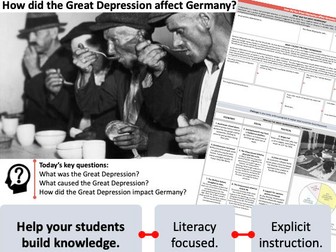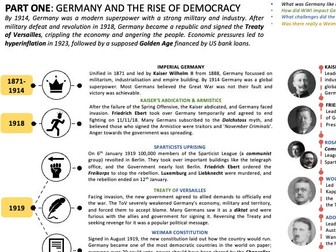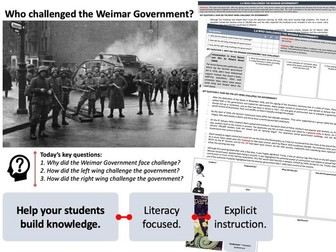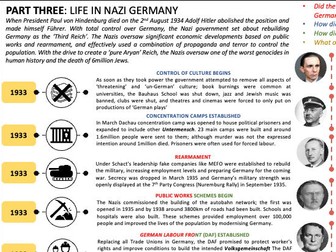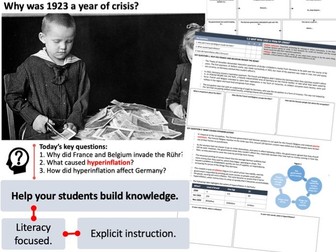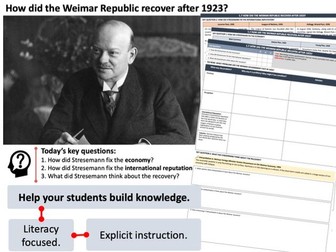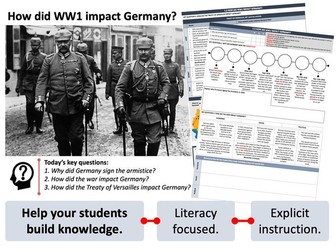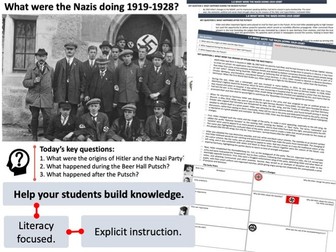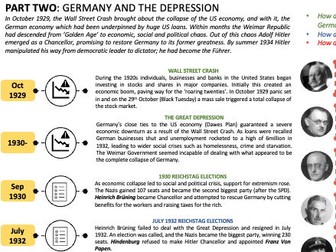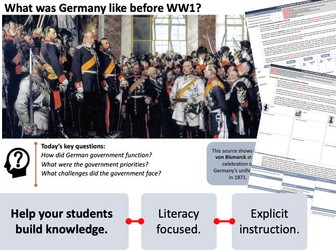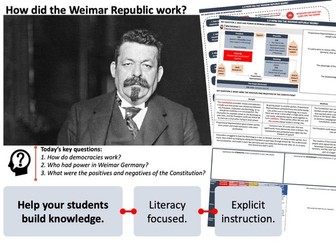The Great Depression in Germany (1929- 1932)- AQA GCSE History Germany 1890-1945
AQA GCSE History, Germany 1890-1945
Lesson Question:
How did The Great Depression affect Germany?
Lesson Key Questions:
What was The Great Depression?
What caused The Great Depression?
How did The Great Depression impact Germany?
This lesson follows the principles of explicit instruction- tasks are narrative and literacy driven with high value tasks to help pupils focus on building substantive knowledge.
